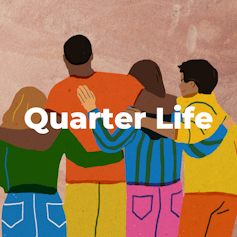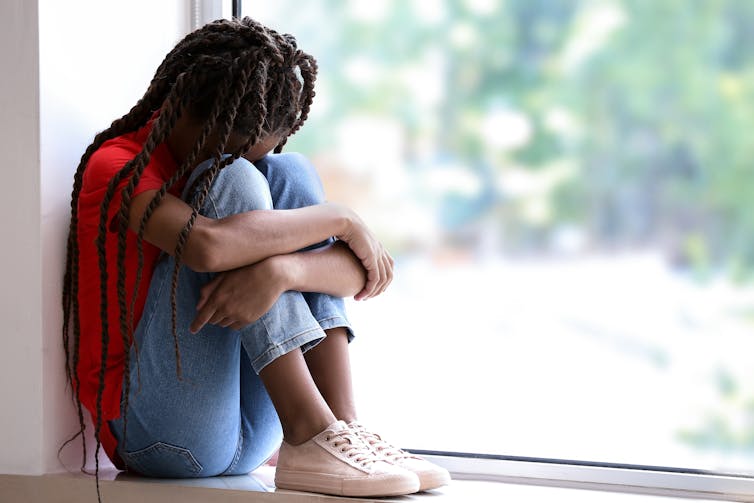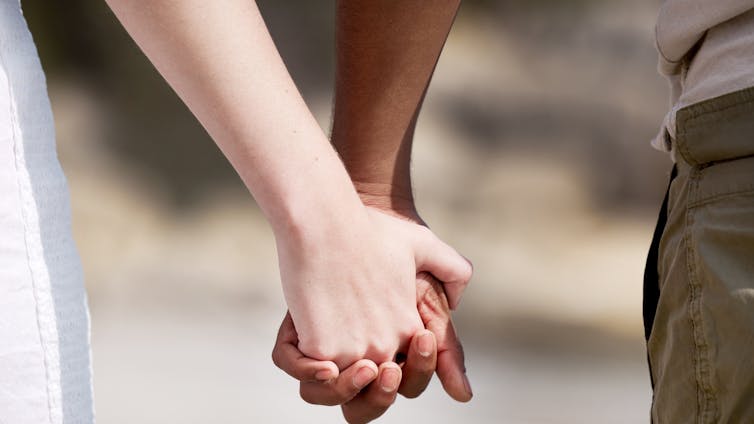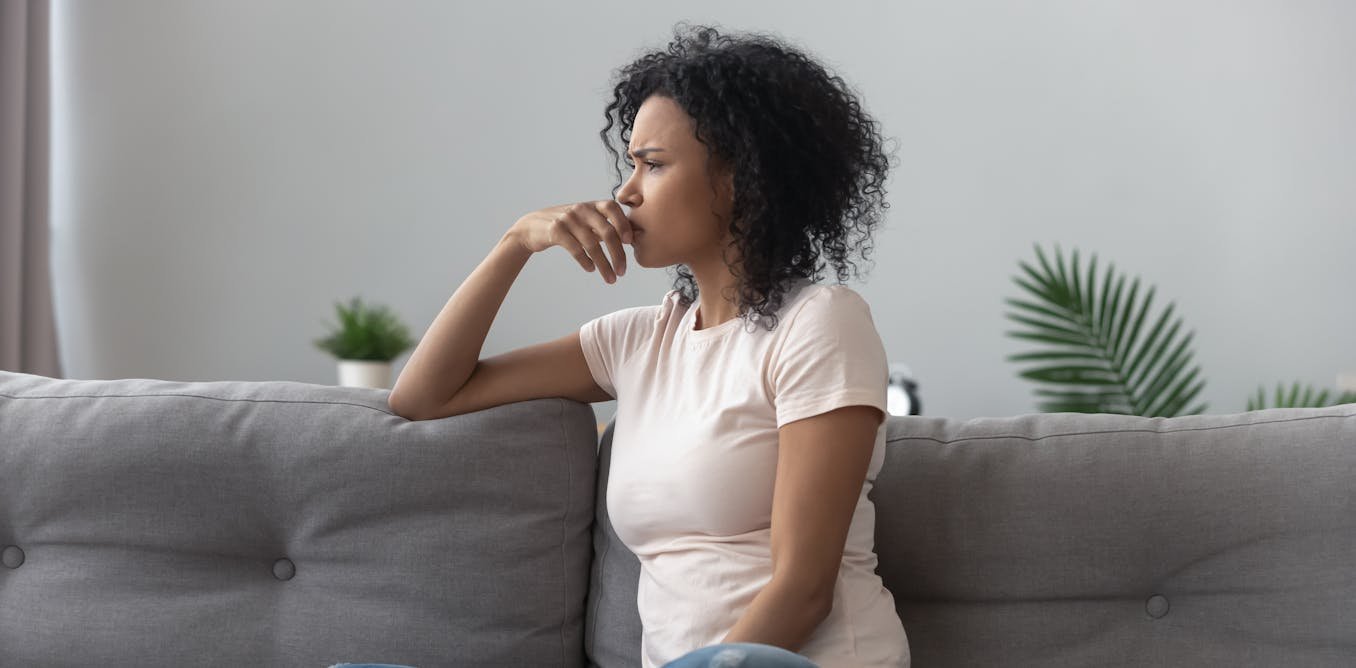Relationships between people of different ethnic or racial backgrounds have become increasingly common. Research indicates that more adolescents and young adults are entering into inter-ethnic relationships, and survey data from the United States shows that an increasing number of people have a favourable view of these relationships.
Inter-ethnic relationships are often seen as an act of love that conquers racism since people from different backgrounds overcome marginalization to create inter-ethnic families.
While these bonds can potentially decrease prejudice against members of racialized groups, cross-cultural connections are also vulnerable to the far-reaching influence of racism.

No one’s 20s and 30s look the same. You might be saving for a mortgage or just struggling to pay rent. You could be swiping dating apps, or trying to understand childcare. No matter your current challenges, our Quarter Life series has articles to share in the group chat, or just to remind you that you’re not alone.
Read more from Quarter Life:
Intimate racism
Racism is a system of domination and oppression that is deeply rooted in colonization and slavery, where whiteness was idealized and every other ethnic group was dehumanized. Racialized people who are not white are also susceptible to endorsing this false hierarchy, leading to racism between racialized minority groups.
We use the term “intimate racism” (inspired by the term intimate partner violence) to highlight that racism exists in close relationships, and that it requires special attention.
Intimate racism can take many forms, ranging from hostile insults and racial slurs to more subtle, pervasive everyday microaggressions (for example, a parent stereotyping their child as less smart because of their racialized identity).
Intimate racism can also touch on prejudices against racialized people that are particular to physical and emotional intimacy, which show up differently in our familial and romantic relationships.
Racism in family
From childhood, we depend on our parents and family to support and guide us, helping us form secure attachments as well as stable and loving bonds within our families and with others as we grow and expand our social connections.
These days, multiracial families are more common. However, parents of multiracial children may not always understand their children’s realities with racism, they may not be able to support their racialized children against racism and they may discriminate against their racialized children, shaking the very foundations of the family bonds.

(Shutterstock)
Mixed-race children have reported favouritism for lighter skin colour and isolation within their families, as well as having their racial identities denied and stereotyped by family members.
In a study on microaggressions in families, one mixed-race research participant told researchers:
“Even though my skin was darker, I had straight hair, I had the white features and I behaved the way a white girl should behave, and so my grandmother always favoured me and was much nicer to me and horrible to my sister.”
In addition, transracial adoption has a long history of racialized children being forced into white families and institutions in order to erase their heritage and cultural identity.
This legacy has endured, with many white adoptive families thinking they need to “save” racialized children from their minority families by erasing their backgrounds and cutting them off from their community.
Racialized adoptees in white families have shared that they experience identity erasure, denial of racism’s existence and microaggressions and insults from the very people who are supposed to protect them. Such experiences expose them to racial isolation and violence.
Racism in romantic relationships
Our close relationships are supposed to be safe from racism; our meaningful connections with people who we know accept us, love us and see us for who we are can act as a protection from the harms of oppression.
So when we experience racism from our loved ones, it is a violation of the shared trust, safety and intimacy that we need from those who are supposed to be closest to us.
When it comes to romantic partners, our attractions can sometimes be coloured by exposure to media and messages that frame racialized people as “exotic” or inferior.
People in inter-ethnic romantic relationships have shared experiences where their partner sought them out to fulfil fantasies based on degrading racist sexual stereotypes. Racialized people can also be stereotyped by their partners.

(Shutterstock)
These stereotypes can also be echoed by family and friends, who may view an inter-ethnic relationship as unserious and hold negative views of a partner based on racial stereotypes.
In a study of intimate racism conducted by one of us (Maya A. Yampolsky) and colleagues, a Black participant said: “My former partner accused all Jamaican males of being cheaters and liars.”
When people experience intimate racism, they also experience greater distress, trauma and negative impacts on their well-being. The impact extends beyond individual hurt to the relationship dynamic, rupturing trust and affection for our loved ones, and leading to strained or even dissolved relationships.
Groups that are subject to more than one source of marginalization (because of race, gender, class, ability and so on) face multiple oppressions with intimate racism. Racialized women face sexist expectations of submissiveness, and queer racialized people often experience both racism in LGBTQ2S+ spaces and homophobia or transphobia in their racial communities.
What can you do to address intimate racism?
There isn’t enough research that looks at resolving intimate racism yet, but we can draw on findings from couples conflict, anti-racism repairs and social therapy for inspiration.
Interracial couples who value the importance of ethnic identities and multiculturalism are more likely to recognize racism at large, and how it can influence their relationship, which may help prevent intimate racism from showing up in these relationships.
We know that repairing harm from racism involves acknowledging the impact rather than the intent of our actions, recognizing our own biases and how they appear in our life, apologizing sincerely and committing to changing our behaviour in the future.
Social therapy can also provide tools to address racial tensions and change harmful relationship dynamics by encouraging open conversations about race, and allowing partners and families to explore how history has shaped their ways of loving, accepting or rejecting one another.
Ultimately, tackling intimate racism is part of our work to dismantle racism at the roots of all our social institutions so that racism doesn’t creep into our cherished connections.

Felecia Phillips Ollie DD (h.c.) is the inspiring leader and founder of The Equality Network LLC (TEN). With a background in coaching, travel, and a career in news, Felecia brings a unique perspective to promoting diversity and inclusion. Holding a Bachelor’s Degree in English/Communications, she is passionate about creating a more inclusive future. From graduating from Mississippi Valley State University to leading initiatives like the Washington State Department of Ecology’s Equal Employment Opportunity Program, Felecia is dedicated to making a positive impact. Join her journey on our blog as she shares insights and leads the charge for equity through The Equality Network.




